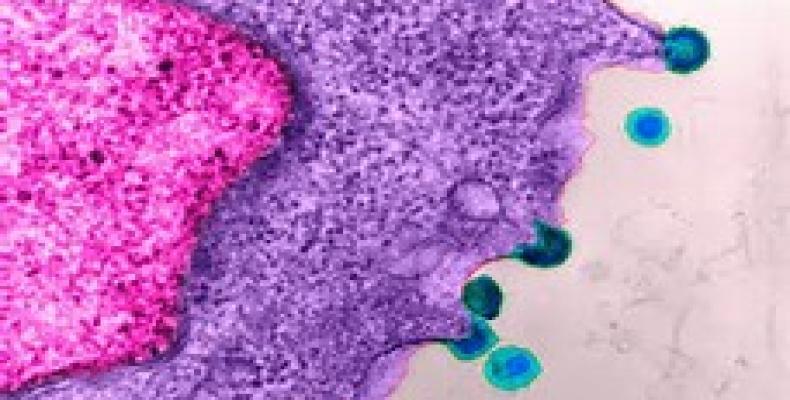Havana, February 24 (RHC-teleSUR) -- A Cuban medical researcher refuted the coverage that perpetuated disparaging myths about the island nation, by Miami-based media of an international study on the human immunodeficiency virus (HIV) released earlier this month.
Dr. Vivian Kouri, professor and researcher in Microbiology from the Sexually Transmitted Diseases (ITS) laboratory, questioned the coverage of the study by El Nuevo Herald.
“The misleading manipulation did not occur in the majority of the media but in a very specific few that have tried to discredit the Cuban health system, taking advantage of whatever they find, even if what they say about it does not make much sense,” explained Kouri to CubaSi on Monday.
“The Belgian counterpart of the research was in touch with the media and rebutted a few wrong facts, asking them to read the study again so it would not be distorted,” she added.
For instance, the Miami media claimed that in Cuba doctors wait three years before treating patients, something which Kouri said was untrue. The investigation itself does not deal with the treatment or the evolution of the disease.
The study, released on February 16th in the scientific magazine EbioMedecine, stated a new and more aggressive type of HIV was growing in Cuba, combining the genetic material of three viruses. This new type would give a greater viral load to the patients, developing the AIDS syndrome more rapidly.
While people usually start developing AIDS (acquired immune deficiency syndrome) five to 10 years after being infected by the virus, if infected by the Cuban type – originally from Africa, according to the study – this period reduces to three years. The development is so quick that symptoms of AIDS can start appearing even before starting treatment, explained the researchers, which led to the distorted fact reported by news outlets from Miami like the Nuevo Herald.
Globally, about 60 new types of HIV have been discovered so far, admitted Dr. Hector Bolivar from the Medicine School of Miami.
Lastly, the study has some methodological limitations, including the small sample of 95 patients infected by HIV, argued Kouri.
Cuba is one of the countries with the lowest rates of HIV infection in Latin America – with a prevalence of 0.1 percent of the total population, according to CubaSI, and the situation has been quite stable over recent years.
The Cuban health service has been praised by world experts. According to a 2010 Science Magazine article, Stanford University scientists Paul K. Drain and Michele Barry wrote that Cuba had better health indicators than the United States, with 20 times less resources per capita, thanks to effective preventive approaches and a pharmaceutical model that is not based on profit, as in developed countries.


